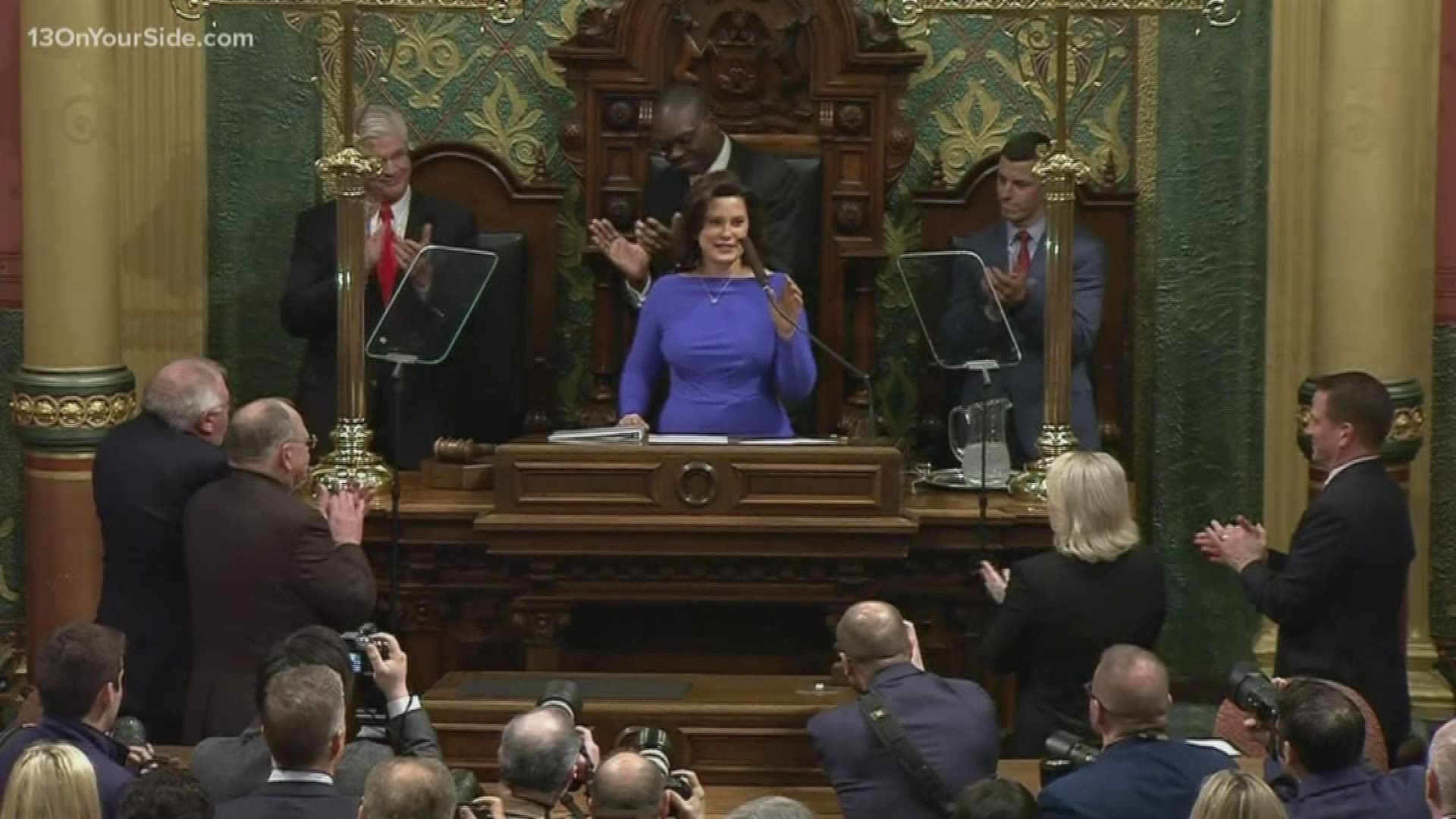DELHI CHARTER TOWNSHIP, Mich. — Gov. Gretchen Whitmer on Thursday tamped down suggestions that she is open to delaying the elimination of debt in Michigan's teacher retirement system to help boost road repairs, saying such a move would come with a long-term cost.
The Democrat's proposed 45-cents-a-gallon fuel tax hike has been rejected by Republicans who control the Legislature and she has been pressing them to come up with counterproposals after they adjourned in June without a budget deal.
Some ideas under consideration include borrowing $10 billion to boost the pension fund and free up money for additional annual road spending — a concept strongly opposed by Whitmer — or extending the date by which unfunded liabilities would be paid off beyond 2038. The latter option could similarly reduce school spending by between $475 million and $800 million a year, making it easier for the GOP to remove the sales tax on fuel that mostly goes to schools and municipalities and to pass an equivalent per-gallon tax to better fund roads.
Whitmer said recent news stories "overstated" her comments about postponing the final payment of obligations to the Public School Employees Retirement System.
"Every time we use a mechanism like that we're forgoing opportunities in the future, and it comes with a cost," she told reporters after reading a book to children at an elementary school near Lansing. "There is ultimately a long-term cost of pushing off (the) paying off of our debts. So that is why I certainly am not endorsing that. Without more detail, it's hard to weigh in with specificity on what they're potentially considering on the Republican side of the aisle."
The Michigan Education Association, which is the state's largest teachers union and a political ally of Whitmer's, this week blasted what it called a "pensions-for-potholes scheme," saying it would be a "risky shell game."
"Let me be crystal clear: MEA will oppose any efforts to bond, borrow, delay payments, re-amortize or otherwise underfund our pension system to pay for road repairs," president Paula Herbart told union members at a conference.
Whitmer has made road fixes a major priority. She has called for $2.5 billion in new revenue from higher fuel taxes that also would effectively free up funds for education that have been shifted to address deteriorating roads.
The $10 billion pension-bonding proposal originated from the West Michigan Policy Forum, a group of business leaders and GOP donors that has listed unfunded retirement costs as a priority.
Jase Bolger, the organization's policy adviser and a former Michigan House speaker, said Thursday that the impetus for the plan is addressing the state's $30 billion-plus "underfunded pension problem" so it "isn't passed on to our kids," but the proposal would happen to free up cash that lawmakers could use to help fund roads.
He said the state would borrow $10 billion, invest it over three years and earn more in the market than would be paid in interest on the bond. A 30-year repayment schedule would be firmly established and end in 2049, he said. He characterized the investment assumptions made for a 2038 repayment as "unrealistic" in part because they would require that the state direct all growth in the school aid fund in coming years to the retirement system — not per-pupil classroom spending.
Whitmer, however, said issuing a bond for the teacher retirement system is "dangerous." Bolger countered that only amortizing the pension payments over a longer period of time, without the bonding, would cost taxpayers more in the long run and is "kicking the can down the road."
Senate Majority Leader Mike Shirkey has expressed support for and interest in the pension-related changes. A spokesman for House Speaker Lee Chatfield said the options are being discussed, "along with many others."
The Senate is planning to return to vote on bills in late August, about a month before the Oct. 1 deadline for a budget agreement. The House has not announced when it will return to session.
School districts did know their state funding by July 1, the start of their fiscal year, for the first time in a decade.
"It is creating a lot of stress in every district across our state," Whitmer said, who again urged legislators to "get back to work."
►Make it easy to keep up to date with more stories like this. Download the 13 ON YOUR SIDE app now.
Have a news tip? Email news@13onyourside.com, visit our Facebook page or Twitter

